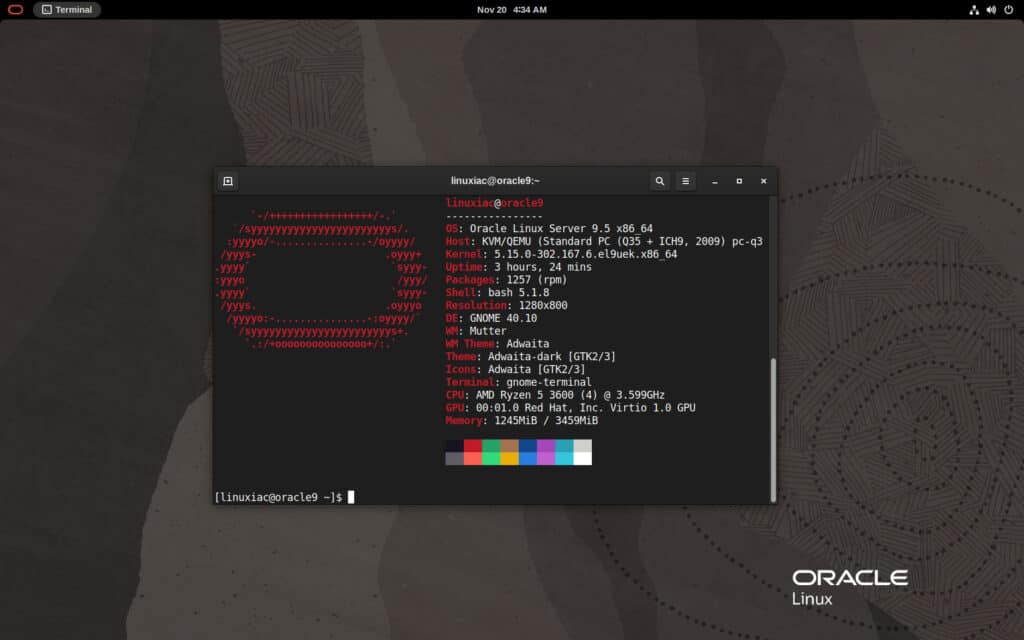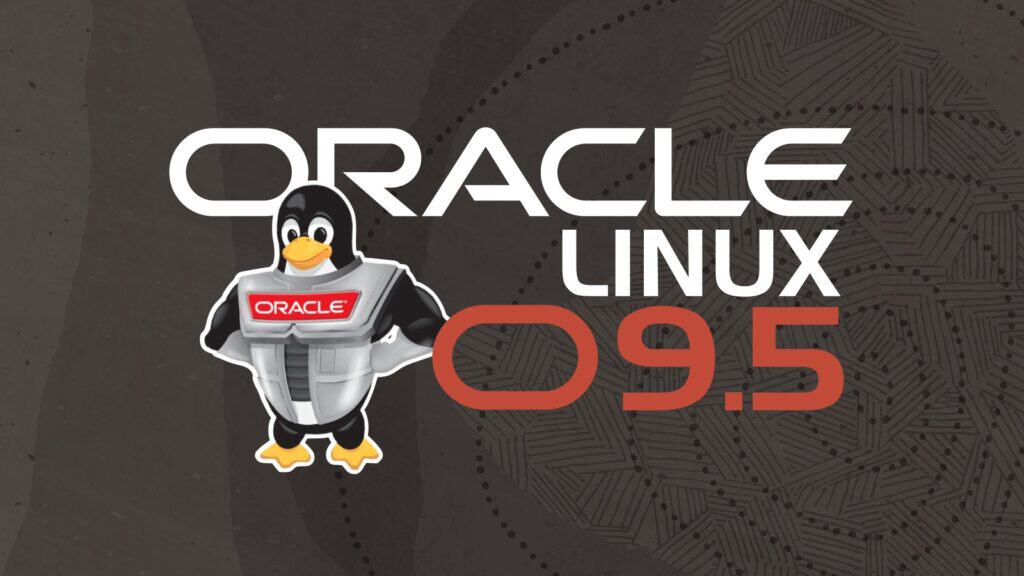After RHEL 9.5 appeared a week ago, followed by the relative AlmaLinux 9.5 and Rocky Linux 9.5 releases, today, Oracle has officially launched its Oracle Linux 9.5, which brings a host of enhancements to 64-bit Intel/AMD and Arm platforms.
Powered by Oracle’s Unbreakable Enterprise Kernel (UEK) Release 7 Update 3 and Red Hat Compatible Kernel (RHCK), the distro offers 100% application binary compatibility with RHEL, ensuring seamless application operations without disruption.
Regarding the new stuff, this update brings several notable advancements across compilers, development tools, security, dynamic programming languages, and container management. Here’s a closer look at the key features:
- Java Upgrade: Java’s default system transitions to OpenJDK 17, offering improved runtime performance and developer tools.
- .NET 9.0: This update supports C#13 and F#9, introduces machine learning capabilities through ML.NET, and optimizes ASP.NET Core for authentication and cloud-ready application development.
- Enhanced Toolsets:
- GCC Toolset 14, including GCC 14.2.1 and other updated tools like binutils, dwz, and valgrind.
- Rust Toolset 1.79 and Go Toolset 1.22.5 for modern programming environments.
- GDB 14.2 for advanced debugging.

Regarding dynamic programming and web technologies, Oracle 9.5 also has much to offer:
- Python: Enhanced interpreter performance leads to faster execution.
- Node.js 22: A new application stream providing access to the latest Node.js version.
- HTTPD Update: Apache HTTP server upgraded to version 2.4.62 for improved web hosting capabilities.
On the side of the security enhancements, it’s worth mentioning the following changes:
- OpenSSL 3.2.2: Implements advanced cryptographic operations, aligns with FIPS 140-3 standards, and includes critical patches to strengthen system security.
- OpenSSH 8.7p1-43: Now supports configurable default key sizes for SSH host key generation.
- SCAP Security Guide 0.1.74: Features new STIG profiles for enhanced compliance with DISA standards and additional guidance aligned with Australian cybersecurity policies.
The Cockpit web console, updated to version 323, also introduces a File Manager for streamlined file operations such as browsing, copying, and uploading directly through a web interface.
Lastly, the popular container management tool Podman is now updated to version 5.2, ensuring compatibility with the latest container standards and offering enhanced usability for developers.
Visit the official Oracle Linux 9.5 release notes for more details, including a comprehensive list of changes and updates. The release announcement itself is here.
